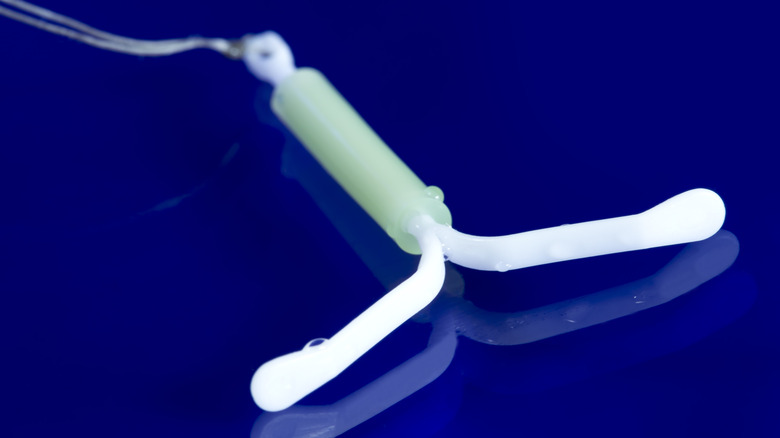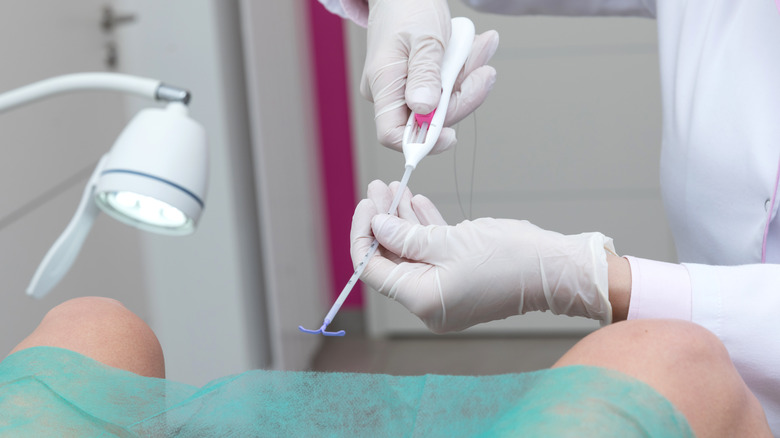Should You Take Ibuprofen Before Getting An IUD?
An intrauterine device (IUD) is a small T-shaped device inserted into the uterus to prevent pregnancy. While there are a few different types of IUDs, most are known as hormonal IUDs (via Verywell Health). They work by releasing progestin levonorgestrel into the uterus to thicken the mucus at the opening of the cervix. This helps prevent sperm cells from reaching and fertilizing an egg. Overall, IUDs are an effective and long-lasting form of birth control. They can last anywhere between 3 to 7 years before they need to be removed and replaced.
Although it might seem overwhelming, IUD insertion is a fairly quick and straightforward process. In fact, the entire procedure only takes a few minutes. That being said, it's not uncommon to experience mild pain and discomfort during an IUD insertion. Nearly two thirds of people with IUDs have reported feeling mild to moderate cramping and discomfort during the procedure (via Healthline). Prior to the procedure, your doctor may recommend taking an over-the-counter pain reliever like ibuprofen, but is it necessary?
How painful is getting an IUD?
According to Planned Parenthood, you should take 800 milligrams of ibuprofen 20 to 30 minutes before your IUD is inserted. However, discomfort should start to subside as soon as the IUD is correctly inserted. The pain of an IUD insertion varies from person to person, depending on their level of pain tolerance. On a scale of 0 to 10, the average pain score typically ranges anywhere from 3 to 6 out of 10, with 10 being the highest possible pain score and 0 being the lowest (via Healthline). However, the exact amount of pain or discomfort you experience will depend on a number of unique health factors. For example, if you have given birth vaginally, you may experience less cramping and discomfort than others. On the other hand, if you tend to have fairly painful pelvic exams, you may be more likely to have a higher pain score.
If you're worried that ibuprofen won't be enough to reduce the pain and discomfort of IUD insertion, you should talk to your doctor before the procedure. They might inject lidocaine around your cervix or give you an intramuscular injection of ketorolac to help minimize your cramping and discomfort. If you continue to experience pain more than a day or two after the procedure, however, your IUD may have been incorrectly inserted, in which case you will need to call your doctor to have it removed immediately.


